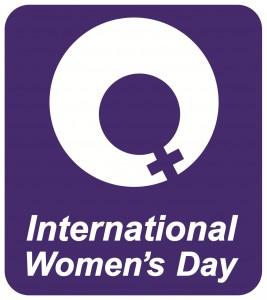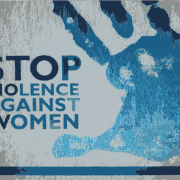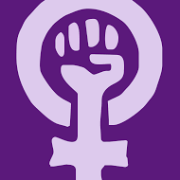Take One Step Towards Greater Solidarity with Women
BY GUEST BLOGGER | May 8, 2014
written by: Megan Wilson-Reitz

Today is International Women’s Day. On this day, we celebrate the essential contributions to our global society made by women around the world – contributions which are largely unpaid, unrecognized and unmeasured (International Monetary Fund). This is also a day recognizing how far we still have to go to achieve real equity between women and men around the world.
The Gospels show us that God’s desire for all people is human flourishing, and we cannot ever achieve human flourishing until the poor and the suffering of the world – women and men – can achieve some measure of equity and justice.
So how do we get there? For those of us in positions of more privilege and freedom, we can participate in the battle for gender equity and justice through the practice of solidarity. So for today, a brief primer – the five key elements of solidarity.
1. Solidarity is a feeling of unity and kinship with others.
Everyone has experienced solidarity with those whose lives are like ours: our classmates, teammates, colleagues, friends and families. It is easy to have solidarity with people who are “like us.” But Catholic social teaching is clear that we are called to solidarity, not only with those who are like us, but also with those whose lives are very unlike ours. International Women’s Day can remind us that women everywhere have at least our gender in common, that we can feel solidarity with one another at that level. Our challenge is to experience that feeling of kinship regardless of all things that divide us.
2. Solidarity requires that we try to learn about and understand others.
It can be difficult for North Americans to find a way to express solidarity with people who live in other parts of the globe. We have a moral obligation to learn about others, about their lives and their struggles, so that we can help. To remain in ignorance of others’ suffering is, at some level, to perpetuate it.
3. Solidarity is about action.
Once we learn about and understand the lives of others around the world, we begin to see their sufferings, their oppression and their struggles more clearly. For those of us who live lives of more freedom and less suffering, we experience this growing awareness as a choice: to help, or not? Solidarity requires that, once we know about the suffering of others, we do something to act upon that knowledge, something to help.
4. Solidarity is not the same as charity.
There are many ways to help intervene in the suffering of others. One obvious way to help is by meeting immediate, concrete human needs such as food, shelter, clean water, medical care, clothing and education. For the many, many people who depend on such charity, it is essential for life, and must always be the first response to suffering. However, charity is a top-down model, unlike solidarity, which operates on a model of equality and shared struggle. Charity is mainly about redistributing resources, not restructuring injustice. Charity asks, “how can my abundance help relieve your suffering?” Solidarity asks, “what or who has caused your suffering, and how can we be a part of your work to change this situation?”
5. Solidarity is about justice.
The more we attempt to experience solidarity with people who are suffering, the more clearly we see the unjust structures and systems that create and perpetuate their suffering. These structures are generally supported on the pillars of greed, violence, racism, sexism and fear (among others). No system built on these pillars can be just; therefore, it is in the interest of all people of conscience to work together to dismantle them. Solidarity in action, therefore, is not only about helping people who are harmed by the unjust system; it is about attempting to rebuild the system in ways that respect all people’s rights and dignity.
In honor of International Women’s Day, take one step towards greater solidarity with women (or men) somewhere in the world today!
Looking for a place to start? Try doing some research or joining a cause linked here: http://www.internationalwomensday.com/. Or find common cause with one of the many organizations that work with the Ignatian Solidarity Network. Our human flourishing depends on each one of us.
ISN welcomes faith & justice related blog submissions from members of the Ignatian family. Please let us know of any blog ideas or posts using this form: ISN Blog Ideas










Leave a Reply
Want to join the discussion?Feel free to contribute!